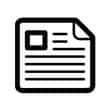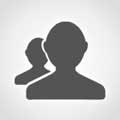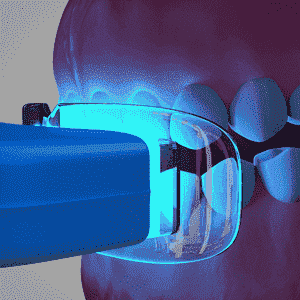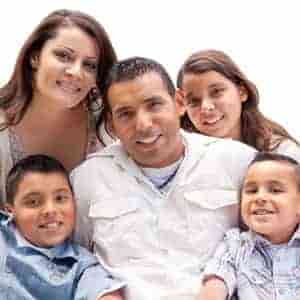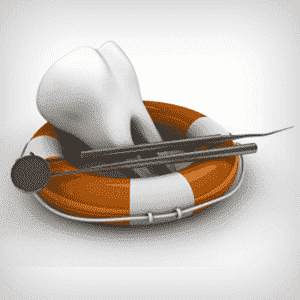Other Services
Have you ever been woken up from the annoying sound coming from your spouse while trying to sleep? Do you suffer from neck pains or headaches? We have a simple dental solution for you!!
We have dentists that specialize in Oral Appliance Therapy that involves the selection, design, fitting and use of a specially designed oral appliance that, when worn during sleep, maintains an opened, unobstructed airway in the throat. Oral appliances that treat snoring and obstructive sleep apnea are devices worn in the mouth, similar to orthodontic retainers or sports mouthguards. Oral appliances are comfortable and easy to wear and care for.
Snoring
Snoring is a Symptom McKaskle Family Dentist, Blake Mckaskle, DDS
The general perception is that snoring is a benign and somewhat humorous situation. It has been the subject of many jokes. For those of you "over retiremeat age' who grew up with radio only, you'll recall the very popular weekly show called the Bickerson's,starring Don Ameche and Frances Langford. The running joke in the sitcom, concerned Don's snoring... the source of many family arguments. However. in his helpful and inforrnative book, Snore, No More, James Mosley points out that "snoring is abnormal, and can be haz-ardous re your health!"
Even more important than the obviously obnoxious sound production is the fact that most snorers eventu-ally develop Obstructive Sleep Apnea (OSA). This condition results in a stop in breathing, which may oc-cur many times in an hour of sleep. These halts in breathing may last from a few seconds to more than a minute. In order to start breathing again,a person must actually wake up, even though he may not be aware of it or remember it.This basically means that a person will almost never be in deeper stages of restorative sleep long enough to really get rested! It is no wonder that many who snore feel "blah" in the mornings and are frequently "groggy" during the day. This can occur in young children as well is in mature adults. Extra tody weight is not always a requiremem either.
Medical speelalists usually prescribe a mechanical, air-pump device that can force air into your Iungs through a facial mask during the night. This is known as a Continuous Positive Air Pressure machine (CPAP). These help many people, but, as you might imagine, many cannot tolerate such an "intrusive" answer to their problem. Perhaps as many as half of those with OSA are claustrophobic. Sometimes,those who do tolerate the air pump find that it may become less and less effective after two or three years of use.
Snoring and sleep apnea are inherited characteristics. Just as you inherit the size of your nose and the shape of your ears, you also inherit the iength and shape of your soft palate and the size of your tongue. Thus, if one or both of your parents have the problem, then you will likely have it too!
Another finding,of those who are always struggling to keep their airway open is clinching of teeth (bruxism). When a person clinches the teeth together,it is easier to force the tongue forward and reduce its blocking the entrance to the throat. All this occurs on an unconscions level.
I have worked wih several designs of anti-snoring dental devices for the past twelve years. Thc one I've used for the past three and a half years has proved superior in results, comfort and ease of use for the patient compared to the others.
Snoring is not a benign activity. OSA is very frequently associated with it, whether in a mild or severe form. Likewise, many chronic health problems are directly associated. A few of these are elevated blood pressure, irregular and abnormal heartbeats, tachyrdia (a "racing" heart),intestinal difficulties such as gastric and/or irritable bowel syndrome, chronic tension headaches or migraine inc headaches, and restless leg syadrome. Many of these difficulties are ones which conventional medicine does not deal with very well. The Autonomic Nervous System (ANS) mediates hundreds of "automatic unconscious" functions within the body. Our hypothesis is that it "gets out of balance" as it compensates in order to keep us breathing. Thus, if we can make it possible to breathe more easily with an oral device. then the body usually starts to correct its own dysfunctions ANS returns. to a more normal state.
We get depressed A ,study in the archives of the Internal Medicine, showed a casual rela-tionship between depression and sleep related breathing disorders like sleep apnea. Patients with moderate to severe breathing disorders are 2.6 times as likely to become Clinically depressed as normal sleepers.
TIME December 4,2006
Introducing Oral Systemic Balance (OSB) Therapeutic System
A new oral therapy that con alleviate snoring and sleep apnea more comfortably and more effectively than other designs un the market. Frequently, as an added benefit, you may See improvement in chronic headaches, neck aches and irregular sleep patterns.
This is removable plastic device that fits over the upper and lower teeth. It looks something like an orthodontic retainer.It is able to reposition the lower jaw to a more forward (protruded) position and hold it there during sleep.When the jaw comes forward, the base of the tongue moves forward with it and therefore,keeps the airway open while sleeping.
Most people view snoring rather lightly,a mere noise nuisance. However. It offen progresses into Obstructive Sleep Apnea (OSA). This means that the individual actually stops breathing for varying lengths of time can occur many times per hour. A person has to "wake up" in order to start breathing again, so he (or SHE) may get much less of the deeper,restorative sleep.He will not be aware of these awakenings.The body oxygen levels will take serious drops also.
It has been estimated that upto 50% of Americans snore at least occasionally and that perhaps 25% have OSA to some degree.A multitude of health disorders and chronic pain syndromes may arise as the struggle to breathe,EASILY,goes on
Since the difficulty lies with the tongue combined with the soft palate blocking the throat,there is really an ongoing struggle to keep the tongue more forward to facilitate breathing.This goes on around the clock with more severe results occuring at night with the big postural change of lying down on the bed.This is why many people comment to me that they sleep better in the recliner chair.
The body compensates in order to keep the tongue forward during the waking bours and sleeping hours. It does so through the Autonornic Nervous System(ANS). Most people have never heard of this system.You could think of it as the Automatic nervous system.it provides the nervous stimuli for all the unconscious functions of the body.You don't have to "remember" to sweat during hot weather,or produce saliva flow when you eat,secrete thyroid hormone in the right amounts and such like.
One of the important chemicals the ANS can produce is adrenaline.While it is very helpful for many situations,you don't want to have excess amounts in your system all the time.it is one of the main STRESS chemicals. While it can tone up the muscles of the tongue and throat to function better,it continues on to other muscles and body systems that don't need it. Therefore, the muscles of your jaws, head and neck,etc, will be contracting harder and longer for no good reason.
A partial list of health problems associated with snoring and sleep apnea
Time magazine reported that those with sleep related breathing disorders are 2.6 times as likely to become clinically depressed as normal sleepers.
UC San Diego reports OSA as a contributor in dementia with advancing age.
Frequent day time sleepiness and fatigue. Many have fallen asleep while driving their cars resulting in crashes.
There may be increased day time irritability,faulty memory, inability to concentrate and decreased libido.
More frequent tension headarhre and migraine headaches.I have yet to see a patient suffering with migraines who does not show the signs of an airway struggle.
Asthma is more common.
The UC Berkley Wellness Letter has reported that OSA is strongly linked to a broad range of cardiovascular problems, includng hypertension, strokes, heart attacks, arrhythmais,heart failure as well as Type II disbetes.
The following are some comments made by a physician whom I have known for many years, a specialist in Anesthesiology. This very experienced doctor had not previously realized that there are dental based devices that can relieve snoring and OSA:
"Literally,every day at work I am having discussions with people with sleep apnea .it is America's epidemic. Some is clearly weight related but others are not. Even the weight related ones have such a hard time because they are so tired they can't bring themselves to exercise. Sleep apnea affects every system and impacts their health, anesthetic and recovery to a degee that is hugely unrecognized. People are always asking me what I recommend and I haven't really had a good answer for them. Honestly, the ones that have surgery seem to be little improved,if any, and the same goes for those pillar implants that were popular a few years ago. I have thought it was going to take a device that fit in the nose to be able to really clear the airway.Most people hate the CPAP machines. so they don't routinely ase them.How cool is this!"
Night Guard
Night Guard: About 20% of the population clinches or grinds their teeth known as Bruxism, half of whom become chronic enough to require treatment. Bruxism can occur at any time, but it's most common at night while sleeping. Because it happens during sleep, most people don't know they brux until their dentist tells them that they are showing signs. Often a spouse or family member hears the grinding sound. When diagnosed early, teeth grinding can be treated before it causes permanent damage to the teeth. A removable, custom-fitted plastic appliance that fits between the upper and lower teeth can be designed and fitted to prevent them from grinding against each other.



